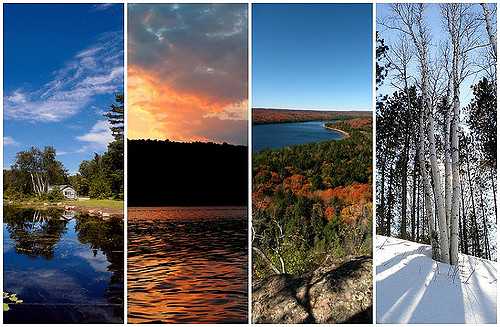This very practice is the key to my happiness.
Impermanence: the idea that that all of conditioned existence, without exception, is transient, evanescent, inconstant.
“Buddhism declares that there are five processes on which no human being has control and which no one can ever change. These five processes are namely, the process of growing old, of not falling sick, of dying, of decay of things that are perishable and of the passing away of that which is liable to pass. Buddhism however suggests that escape from these is possible and it’s through Nirvana.”
Fighting these creates suffering. Accepting and embracing them creates joy and freedom. I never knew it was so simple. I spent a lifetime complicating all aspects of life. When I found this, I was exhausted.
“To put it concisely, we suffer when we resist the noble and irrefutable truth of impermanence and death.” ~ Pema Chödrön
I never realized I was creating my own suffering throughout my life.
I was blinded by my constant intellectual need to know and control everything. I couldn’t see my “control” was nothing more than an illusion. I couldn’t see how my need to dictate the terms of how my life “should” look, and railing against all the evidence that was telling me otherwise, was causing me to suffer.
This simple fact never even occurred to me: the only constant in the entire world is change. That’s it. The one thing we can count on is the thing we often fear most!
Think about that for a moment.
I was blown away the first time I read about impermanence. Finding out it was human nature to oppose change, yet that change was the only guaranteed thing in life seemed hilarious to me when I discovered it.
“First, we expect that what is always changing should be graspable and predictable.” ~ Pema Chödrön
I spent my whole life resisting change, thinking that if things would just be this way forever life would be good, and I would be happy. If all would just go according to plan (my plan), I would find happiness. I didn’t grasp that my plan might not be the bigger picture. I stayed in lousy situations and jobs because I feared change. I thought I was incapable of change as a person, and that all the behaviors I found less than desirable about myself were inherent and couldn’t shift.
I’ve come to find out, the very thing I spent my life avoiding and opposing is the only sure thing in life.
When I read Pema Chödrön, and she described how we are constantly changing from moment to moment, how we can’t be exactly as we were five minutes ago, because cells are dying and growing, time is ticking, and this is a constant occurrence, I was blown away. It was as though I finally found this great secret to ending my suffering and pain. We do not wake up the same person we went to bed as. We are not physically the same and we are not emotionally the same. Whoa. This blew me away because I’d finally gained a deep understanding of what the Buddhists mean when they teach about how we cause our own suffering.
Understanding and accepting the unpredictable nature of life is one of the greatest freedoms there is. Being able to face all that comes, with an unshakable faith and a smile of joy, because you trust in the bigger picture is an amazing feeling.
“Second, we proceed as if we were separate from everything else, as if we were a fixed identity, when our true situation is egoless.” ~ Pema Chödrön
I know I fully believed I was a fixed identity, one who was incapable of change, and that I was on my own in life. When I found out this was a false belief, I was ecstatic. I related so strongly to the teachings about “identity” being a need of the ego, and I was tired of my identity when I found Buddhism. Naturally this teaching was music to my ears, as it meant I was free to change at any time.
Our attachments to people, places, items, jobs, and things often drive us in today’s society, and these are rooted in our ego. We tell ourselves we need all these outside objects and people in order to be okay. We falsely differentiate between ourselves and them. We cling onto them after we’ve long outgrown them, or vice versa. We stay in jobs we hate because we fear change and the unknown. We identify with the status of girlfriend, husband, wife, sister, mother, teacher, CEO, writer, boss, student, leader, and we don’t know how to exist without said identity. Acceptance of impermanence frees us from this.
“Third, we look for happiness in all the wrong places. The Buddha called this habit ‘mistaking suffering for happiness,’ like a moth flying into a flame.” ~ Pema Chödrön
We make ourselves miserable, and we stay where we don’t want to be because we cannot accept we’ve changed, or they’ve changed, or the job changed and we no longer fit there, or want to. Or, our beloved friends, families, or pets get older and may pass on soon, and we cannot accept it because we selfishly believe this is all there is in the universe, that we are separate from them, and how will we live without our dearest people? We don’t see how they are in us and we are in them. We expect they will be here forever for us, and we can never be happy without them.
We enter into relationships with all of the outside aspects of life, never stopping to remember our own impermanence, as well as theirs. I can say from experience, the feeling of loss or rejection hurts much less when you practice a belief of impermanence. Living with this belief brings a difficult to describe feeling of well-being, even amid the struggles.
When we can embrace the constant shifting nature of all parts of life we begin to find an inherent, easy going nature within, one that no longer needs to cling to people, places, or things.
This doesn’t mean we don’t care, or love, or feel deeply. We do. Even more so because it is free from limited egotistical illusion. Sure, we are sad when our dearest ones leave us, but it doesn’t devastate us because we know everything shifts and changes and that their human experience is over, just like ours will be too, one day.
So much fear leaves us when we accept impermanence. It simply makes life so much simpler and less dramatic. We relax with joy and get busy living in the moment.
The secret to accepting impermanence? Meditation and pranayama work. Explore your options and find what works for you. I suggest The Places that Scare You by Pema Chödrön as an excellent starting point.
Happiness and freedom await you on the other side!
May it be of benefit. I would love to hear your comments below—do you struggle with this? Do you practice this?
Blessings all.
Author: Lindsay Carricarte
Editor: Catherine Monkman; Travis May
Image: Rick Harris/Flickr
 Share on bsky
Share on bsky





Read 6 comments and reply